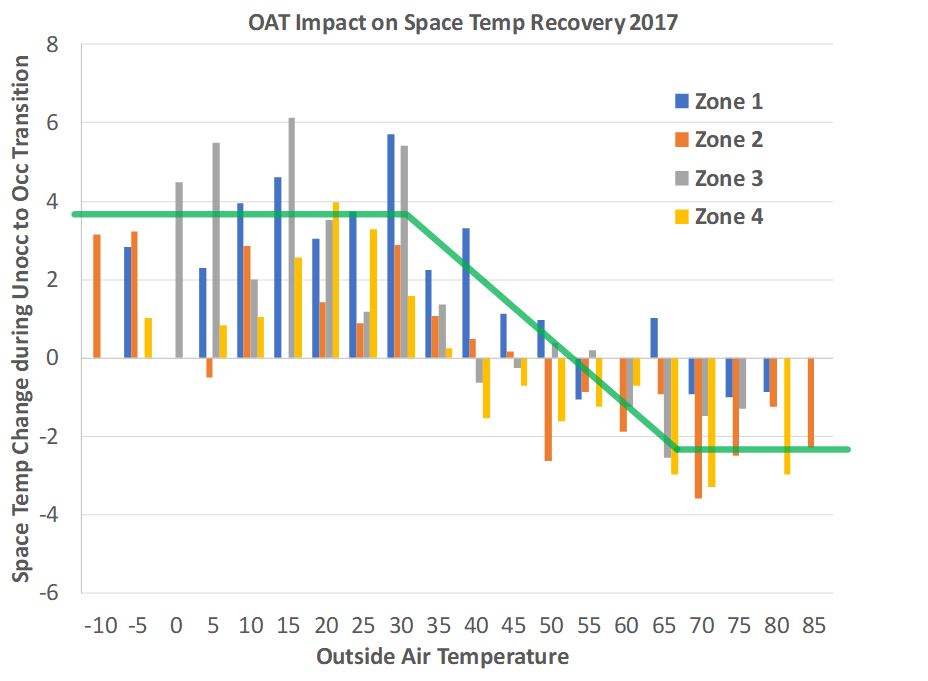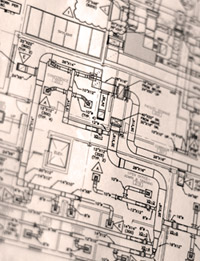My business partner, Matt Napolitan, and I each spent 10 years working at major, international engineering firms. I worked for Syska Hennessy Group (11th nationally ranked) in their San Francisco office and Matt worked for Buro Happold (14th nationally ranked) out of their New York office. We now operate a 12-person engineering consulting firm in Burlington, Vermont. We know both large, big-city engineering and local, Vermont engineering.
Is Bigger Better?
We are always surprised when our clients seek out large engineering firms from Boston and New York to design or commission new construction projects at public institutions in Vermont. We understand that large projects require the staffing resources needed to deliver the project on schedule and that larger firms give the impression of having more capacity and ability to deliver. But smaller, local firms often care more, may actually have more staff dedicated to the project, and can be more nimble and responsive. Consider the following:
1. Small firms care more about these projects.
For a small firm, a large engineering project is often a significant percentage of annual billing and therefore the staff and principals are closely focused on making the project happen and getting it right. At large firms, these projects are just one of many projects and are run through the production mill. The key difference is the level of engagement of the firm’s most senior staff on which the firm’s reputation has been built. With large firms, there is virtually no principal involvement; with small firms, there is significant principal involvement.
2. Small firms may have greater effective depth.
Our firm does building commissioning. Nine members of our staff are commissioning engineers. Both of our principals each have over 10 years’ experience in building engineering design and have over eight years’ experience in building commissioning. Larger firms often have an actual commissioning department of a couple of people. They draw in other engineers to fill the gaps “as needed” but they market their full staff, the majority of whom do not have applied commissioning experience, as resources for commissioning projects. If you go with the large firm because of depth, you may actually have a very shallow pool of commissioning expertise.
3. Regional firms have more advanced expertise in energy efficiency.
As commissioning engineers we have the opportunity to see a lot of different engineering designs. We consistently see a few firms with the greatest savvy in energy efficiency. Out of state engineers often haven’t had the advantage of working in an environment like Vermont, where there are high standards of practice set by peers including people like Bill Maclay, Andy Shapiro, and Marc Rosenbaum, who lead the country in thinking about energy efficiency and influence local designers because they are typically involved in the most innovative projects. In addition, these people follow up on projects, know how they perform and help identify the causes of lower than predicted performance. National and international firms are often churning out projects in volume and therefore rarely incorporate a feedback loop that enables them to build on their successes and learn from their mistakes.
4. Keeping high paying jobs and STEM graduates in state.
If consulting engineering and commissioning projects are farmed out of state, then in-state firms won’t be able to hire the graduates from Vermont’s engineering schools, and these people will leave the state and may visit when they are doing site visits for a project. This drives jobs and tax revenue out of state.
Time and Expertise
One key note is that, for professional services, the client is buying time and expertise. I argue that the expertise can be comparable and, in fact, is often better with local firms. This means that when large firms undercut local firms when pricing a project, they are offering fewer hours. Perhaps they are far more efficient, or perhaps they have not included enough hours to actually deliver the scope the client has requested. For commissioning, which requires travel for which engineers are typically compensated, a significantly lower price from an out-of-state firm means the owner will receive significantly less service. If the goal of commissioning is simply to check a box, perhaps that is okay. But, if the goal is to ensure the owner’s investment in complex HVAC systems is performing as expected, time on site is essential.
Interstate Commerce
My attempts to build my own high performance house have helped me intimately understand the owner’s perspective. The owner has a limited budget and a building to construct. We understand the Commerce Clause of the U.S. Constitution limits in-state preferences and restrictions on interstate commerce. Considering paying more for in-state engineering can be a tough sell, especially if differences in the quality of deliverables is not clear. However, making sure in-state engineering firms are included in the procurement process is certainly a step in the right direction.
Republished from September 17, 2014.






